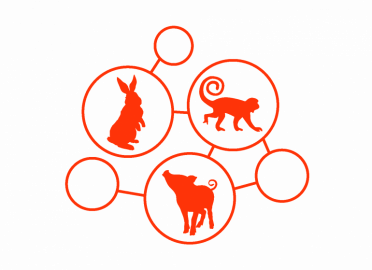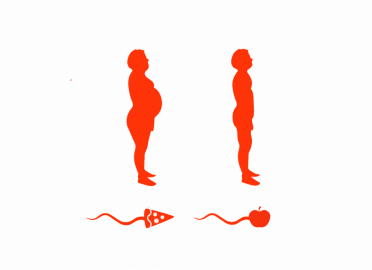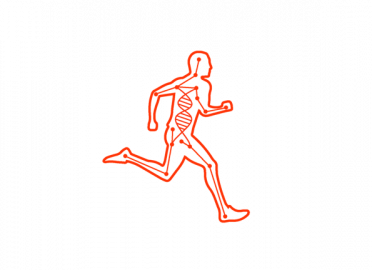Understanding the ancestral causes of obesity

Gametic Epigenetics Consortium against Obesity
Why?
Our behaviour, what we eat and how much we exercise, can lead to epigenetic changes to our DNA. Changes which can potentially be passed on to our children if they occur in certain parts of the body, such as sperm or eggs. We are working to understand how to optimise epigenetic changes for improved health for ourselves and our future children.
We cannot change our genes but we can change how genes are regulated, thereby altering health within both our own bodies, and also within our children.
GECKO is a consortium of researchers working to understand these epigenetic changes, and how we can edit our lifestyle in order to generate a healthy epigenetic signature. We are particularly interested in the epigenetic signature of sperm cells, due to the impact that this has on the health of a man’s future children.
Main Research Areas

Comparative Epigenomics
We collaborate with Copenhagen Zoo and Taronga Zoo in Sydney to collect sperm samples from many different animal species. The aim of the study is to produce a map of what the sperm epigenome looks like in a range of species, and compare these epigenomes to see how much they differ across the animal kingdom. This comprehensive mapping of the sperm epigenome allows us to better understand the role of epigenetics in evolutionary biology and species differentiation.

Gametic Nutritional Epigenetics
We are conducting several nutritional intervention studies, including in mice, pigs and humans. The aim of these projects is to expose male subjects to different diets, and determine how these diets change the epigenetic features in their sperm cells. Studying the sperm epigenome allows us to not only determine diet-induced epigenetic changes in men themselves, but also how this altered nutrition may influence their future child via epigenetic changes in sperm being passed on to offspring.

Functional Genomics
Currently, we understand that when the epigenome of a sperm cell is altered, the offspring produced from that sperm may have some inherited characteristics. However, there are still a lot of unanswered questions regarding how epigenetic changes in gametes lead to changes in the subsequent child. We are researching how epigenetic changes in the sperm cells effect the health of the child through alteration to the development of an embryo. We take an in-depth look at the 3D architecture of the DNA in both fathers and their offspring, in order to address these questions.
Our Studies
Primary Location
GeckoTEk
01TEs (Transposable Elements), escape epigenome reprogramming and therefore represent potential hotspots of heritable information that can be passed on to future generations. The Latin suffix –theca (from Ancient Greek thēkē) is used for any kind of collection. The goal of the GeckoTEk project is to generate a near-complete human sperm (epi)genome of high-quality, using third-generation sequencing technologies with a particular focus on difficult genomic regions and repetitive sequences.
3-D Epigenetics
Three-dimensional conformation of genomes
02Three-dimensional conformation of genomes
An ex vivo characterisation of tissue specific epigenetic remodelling in offspring sired from nutritionally challenged fathers. We utilise approaches such as HI-C and ATAC-seq to develop a picture of genetic architecture, and integrate chromatin confirmation and transcriptomic data to determine how epigenetic regulatory elements reshape the genome.
epiPIG
A nutritional intervention study with mini-pigs.
03A nutritional intervention study with mini-pigs.
EpiPIG is a research study in which we are giving mini-pigs either a ‘Western’ high fat/high sugar diet or a normal pig diet to better understand what epigenetic impact this has on their sperm.
FEAS[Singletons]T
Food intake and Epigenetic Alteration in the Spermatozoa of Singletons and Twins – Singletons Study.
05Food intake and Epigenetic Alteration in the Spermatozoa of Singletons and Twins – Singletons Study.
A human dietary intervention study where participants receive different commonly consumed diet patterns and we are examining the impact it has on epigenetic markers in the sperm. This part of the study is with individual people, singletons.
FEASS[Twins]
Food intake and Epigenetic Alteration in the Spermatozoa of Singletons and Twins – Twins Study.
06Food intake and Epigenetic Alteration in the Spermatozoa of Singletons and Twins – Twins Study.
A human dietary intervention study where participants receive different commonly consumed diet patterns and we are examining the impact it has on epigenetic markers in the sperm. This branch of the study has twin male participants.
geoMOUSE
A nutritional intervention study, using the principles of Nutritional Geometry study with mice
07A nutritional intervention study, using the principles of Nutritional Geometry study with mice
A dietary intervention study in which male mice are given one of 10 diets with different proportions of protein, fat and carbohydrates, and then mated to produce offspring. Following which, we examine the effect of these different diets on the overall health and behaviour of both the males and their offspring. We are especially looking for an epigenetic patterns.
geoMOUSE 2.0
Nutritional study and epigenetics modification, a cognitive approach in mice
08Nutritional study and epigenetics modification, a cognitive approach in mice
A dietary intervention study building on the results from the first geoMOUSE project. Here, one of three isocaloric diets of varying macronutrient compositions are given to male mice, which are then mated to produce offspring. This study aims to extend the investigation on whether offspring epigenetic profiles are influenced by paternal nutrition and how this affects behavioral and cognitive outcomes.
GUINepiG
A nutritional intervention study with guinea pigs
09A nutritional intervention study with guinea pigs
A dietary intervention study with guinea pigs fed high or low –fat diets with or without additional Vitamin C to identify through which mechanisms nutritional factors influence epigenetic inheritance of obesity and metabolic disease.
SEAS
Sperm Epigenomics Across Species
10Sperm Epigenomics Across Species
A partnership with Taronga Zoo and the Copenhagen Zoo to assess sperm epigenetic signatures across a wide range of species. The study aims to build a reference map of sperm epigenome modifications among animal species to understand similarities and differences in what environmental information is transmitted in sperm.
SEAS = Sperm Epigenomics Across Species
[S]Exercise
Sperm Epigenetics and Exercise
11Sperm Epigenetics and Exercise
Endurance training remodels sperm-borne small RNA expression and methylation at neurological gene hotspots.
We exposed young men to a 6-week endurance training exercise regime, and measured the epigenetic signature of their sperm before and after the intervention. This study highlighted exercise-induced remodelling of genes involved in the brain.
GECKO Origin
Obesity and Bariatric Surgery Drive Epigenetic Variation of Spermatozoa in Humans
12Obesity and Bariatric Surgery Drive Epigenetic Variation of Spermatozoa in Humans
The epigenetic signature of both lean and obese men, and men before after weight loss was examined, highlighting both rapid and long-term remodelling of the sperm epigenome at gene regions involved in appetite regulation.
Study progress
GECKO is a consortium of researchers, who are working to understand how to make these changes for the best.
- 01 GeckoTEk Ongoing
- 02 3-D Epigenetics Ongoing
- 03 epiPIG Ongoing
- 04 epiRABBIT Ongoing
- 05 FEAS[Singletons]T Ongoing
- 06 FEASS[Twins] Ongoing
- 07 geoMOUSE Ongoing
- 08 geoMOUSE 2.0 Ongoing
- 09 GUINepiG Ongoing
- 10 SEAS Ongoing
- 11 [S]Exercise Completed, Results Available
- 12 GECKO Origin Completed, Results Available